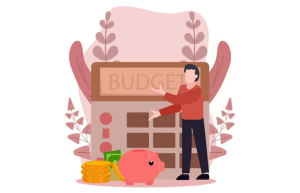Managing personal finances becomes a critical skill during periods of unemployment. It is a time when financial prudence and strategic planning are essential to ensure stability and security. Navigating through these challenging times can be daunting, but with careful budgeting and resource management, one can mitigate the stress and impact of job loss. Whether it’s cutting down on unnecessary expenses, exploring income alternatives, or tapping into available resources, every step can make a significant difference.
Understanding your financial situation during unemployment is the first crucial step. Assessing your savings, ongoing bills, and potential sources of temporary income allows you to create a realistic and sustainable plan. Additionally, exploring strategies for income supplementation through freelance work or other flexible opportunities can provide an immediate boost. Making tough but necessary decisions regarding lifestyle adjustments is also essential in maintaining financial health. This will help ensure that unemployment does not become more overwhelming than it already is.
Evaluate your current financial situation

Firstly, it’s important to thoroughly evaluate your finances to understand your cash flow. Begin by listing all your regular expenses, such as mortgage, utilities, groceries, and insurance. Compare these against your savings to determine how long you can sustain your current lifestyle without an income. This assessment allows you to see where adjustments are needed and where you might need to cut back. Determining your financial runway—the number of months your savings will last at current spending levels—provides a timeframe for planning.
Another aspect of understanding your financial picture involves identifying non-essential expenses. More often than not, there are areas in our budget we can scale back, such as dining out less frequently or cancelling subscription services you hardly use. It’s essential to prioritize spending on necessities and cut out what’s expendable. This practice not only helps in prolonging your savings but also makes you more conscious of how you manage money during harder times.
Reevaluate your budget
Reevaluating your budget is an essential part of effectively managing finances when income is limited. Start by examining your current spending habits and identify areas that require adjustments. Budgeting tools and apps can assist in tracking expenses and identifying patterns in spending leakage. They offer insights into how each purchase impacts your overall financial health.
Next, set a realistic and sustainable budget that accommodates your reduced income. Consider areas where you can decrease expenses more substantially, such as finding cheaper insurance plans or switching to discount retailers for shopping. Remember, these changes don’t have to be permanent but are necessary during temporary financial hardship.
Explore alternative income sources
While unemployed, considering alternative income sources can be a proactive step to maintain financial stability. Freelancing, consulting, or part-time gigs can supplement lost income and provide you with some financial relief. Platforms such as Upwork or Fiverr offer opportunities for freelance work across various skills and can be a valuable resource to tap into your expertise.
Additionally, renting out unused space in your home or selling items you no longer need can also generate extra money. From offering your assets on Airbnb to listing second-hand items on eBay or Facebook Marketplace, these small increments can gradually build up to a significant sum over time. Remaining open to diverse opportunities can help bridge the gap until full-time employment resumes.
Make lifestyle adjustments
With unemployment comes the inevitable need to adjust your lifestyle to fit your new financial reality. Evaluate your daily habits and identify areas where you can shift your routine to adapt to a more frugal way of living. For instance, instead of dining out, cooking meals at home using simple, affordable ingredients can significantly cut costs. Consider conserving utilities to decrease bills, such as reducing electricity usage by unplugging devices that are not in use or conserving water.
Saving money on these small expenses can add up and provide extra breathing room in your budget. Simple changes not only contribute to financial savings but also to sustainable living practices. Furthermore, it might be necessary to communicate your situation with those around you. If you regularly engage in social activities with friends or family that require spending, suggest budget-friendly alternatives.
Utilize available resources
Taking advantage of available resources is crucial when trying to stretch every dollar. Look into public assistance programs that can alleviate some of your financial burdens, such as SNAP for food assistance or LIHEAP for energy aid. These programs are designed to help individuals and families during difficult times and can be incredibly beneficial. Additionally, non-profit organizations and community programs often provide resources tailored to those in financial distress.
From food banks to career counseling services, these offerings can provide support both in daily necessities and in securing future employment. Take the time to research what is available in your area and how they can assist in your situation. Financial education workshops and webinars are also valuable resources to consider. These programs offer knowledge on various topics, such as money management or credit repair, and are often free to those who need them.




